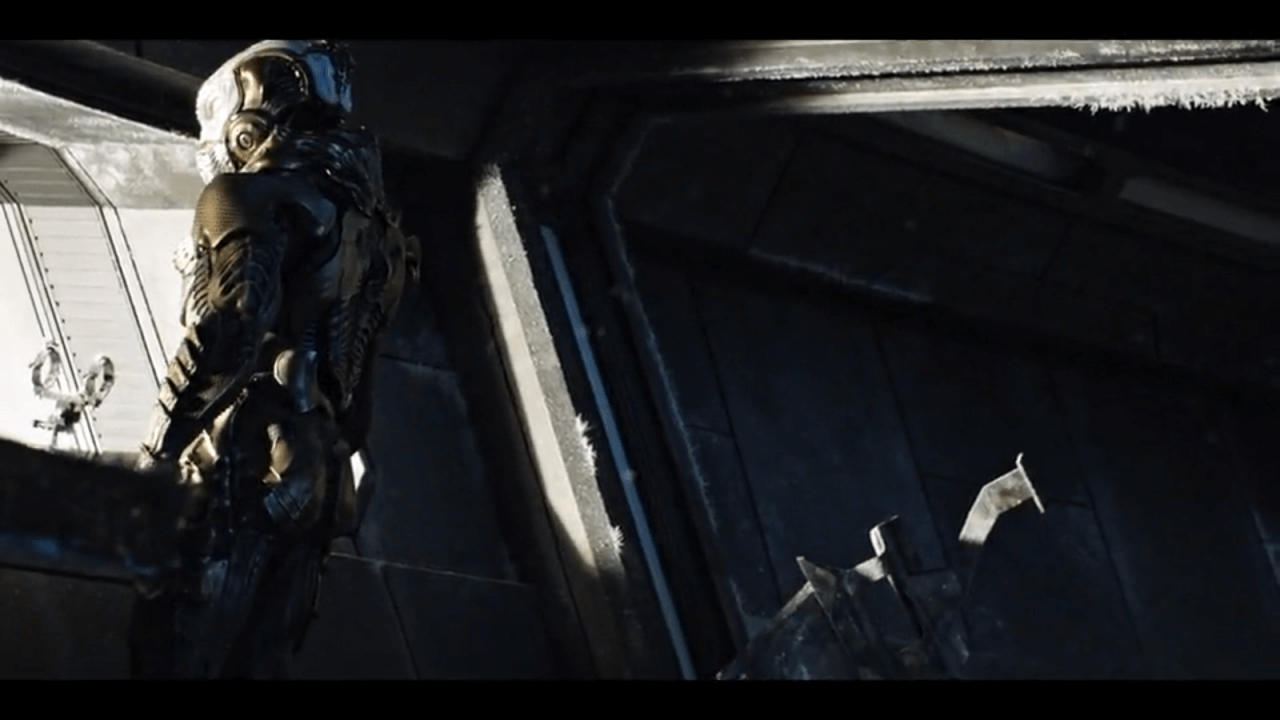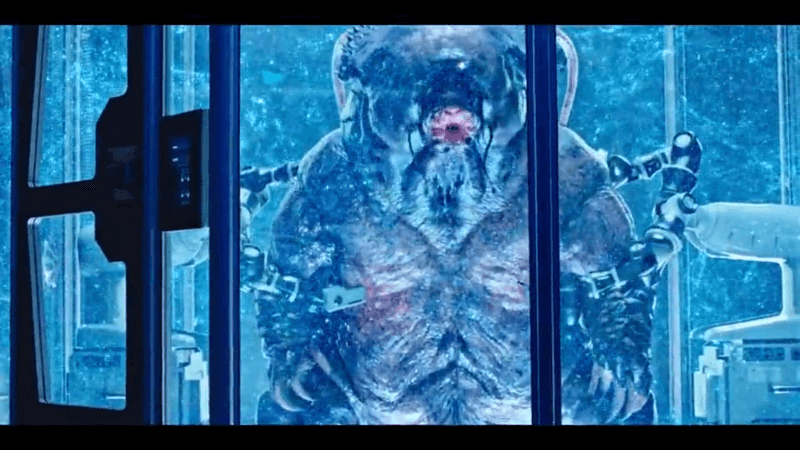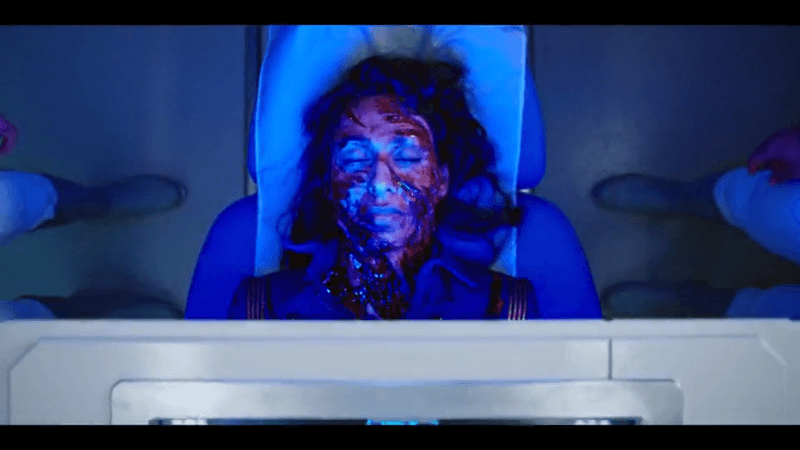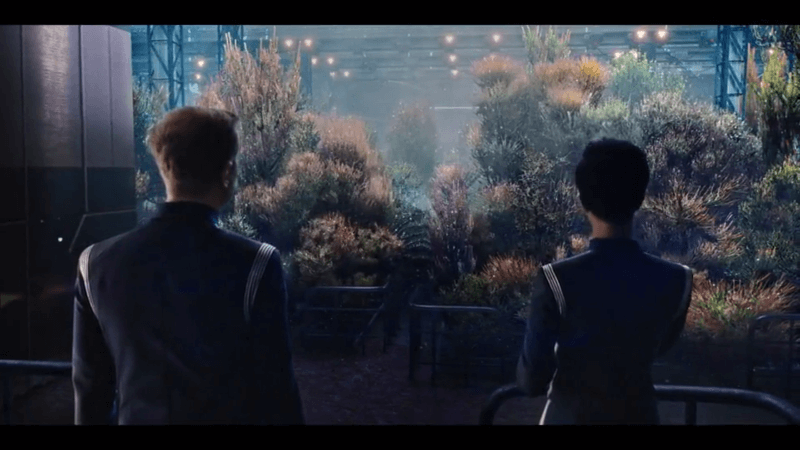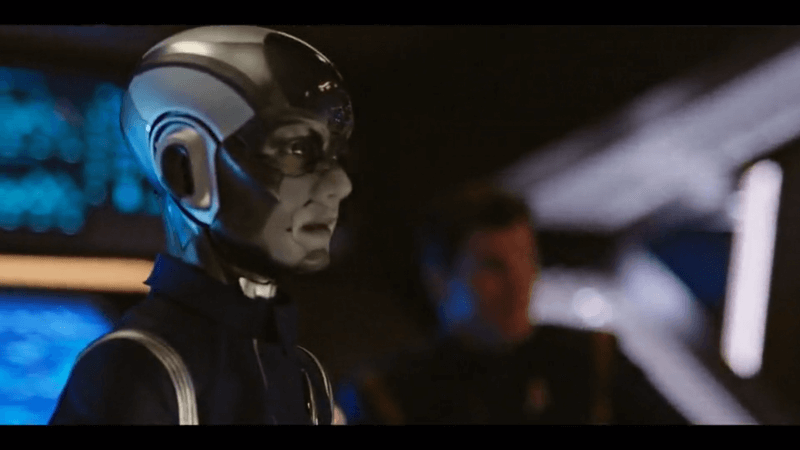Title: Star Trek: Discovery – Season 1 Episode 4: “The Butcher’s Knife Cares Not For The Lamb’s Cry”
Network: CBS
Air Date: October 8th, 2017
Genre: Science Fiction, Adventure, Drama
So far, Star Trek: Discovery has been off to a rocky start, feeling closer to the recent movie adaptations rather than the older shows. “The Butcher’s Knife Cares Not For The Lamb’s Cry” carries a lot of the classic themes native to the franchise, yet the execution is still clunky and far too unnatural.
The episode begins with Michael Burnham officially becoming a part of the crew of the Discovery. Just like the previous episodes, everything surrounding her is swimming in negativity, creating odds for her to overcome. Last week’s episode saw one of those odds in the form of a giant beast, one that Captain Lorca beamed onto the ship at the end of the episode.
Lorca’s reasoning for doing this is to learn how they can use the creature to win the war. Of all the characters in the show so far, Jason Isaacs’ character seems to be one of the few that has a direct goal in mind, one that influences the captain’s actions and ideals. “The Butcher’s Knife Cares Not For The Lamb’s Cry” develops his idea to win the war at any cost via his actions.
Despite a decent character in Lorca though, most of the other characters, their reasoning, and the overall execution is floundering. It’s been well documented that the crew is being pushed hard by their captain to make great strides, no matter what the cost, as a means of winning the war. Yet the actions of high ranking characters like Landry aren’t just illogical, they are stupid.
While her death serves as a caveat for Burnham finding out how to use the creature (terribly named Ripper) it was an ugly, stupid death with no dramatic weight that only served to prove the main character was right once again despite the doubts. It makes Burnham look smart, but everyone is supposed to be on this ship. Instead, everyone else is acting like passive aggressive high schoolers, not using reason, and acting hastily. All of this despite the fact that everyone on board was chosen as the best of the best, but our main character is the only one who has the gall to do anything logical and of course is able to “tame the beast.”
Interestingly enough, I find barely any of these problems with the antagonists of Star Trek: Discovery. Despite being the war hungry, flesh-eating, villains of the show, the Klingons have felt more pragmatic than the crew of the Discovery. A lot boils down to the fact that they have a sense of purpose and reasoning behind their actions and aren’t just doing so because they are the main character. The relation between Voq and L’Rell is also more compelling than any of the characters we’ve spent the most time with on the show too.
More than that, the Klingon portion of Star Trek: Discovery actually feels natural. On the other hand, the Discovery and her crew (with the exception of a few) feel like they are reading straight from a script. Everything is well written, as opposed to flowing naturally, and it shows in the dialogue and interactions.
One of my biggest problems with Star Trek: Discovery so far is the lack non-human dialogue and interaction. Some of the best characters in Star Trek aren’t human: Spock, Worf, Data, Elim Garak. Not only are these characters interesting to look at, but are fascinating to unravel regarding both their personal history and how their race differs from humanities in thought and action. Saru has been my favorite part of the series, yet his scenes are merely serving as a way of moving along Burnham’s arc, not to mention further muddling up her character by being manipulative like Lorca.
“The Butcher’s Knife Cares Not For The Lamb’s Cry” ends with a holographic message from the now deceased (and eaten) Captain of the Shenzhou, Philippa Georgiou (Michelle Yeoh). The key part of her message sums up a big problem with Star Trek: Discovery, “The best way to know yourself is to know others,” but we don’t know anyone yet because of how the shows been written. Now I know the reason behind the fact that we don’t really know anyone yet is because Star Trek: Discovery has only been on the air for a few episodes, but the way they’ve paced things so far necessitates that we should already know them and care for their deaths. Instead, things have centered far too much around Burnham’s mutiny and the war it caused.
Verdict: While some of the ideas of old are starting to appear, a lack of reasoning, poor pacing, and unnatural dialogue are holding Star Trek: Discovery back from surpassing its predecessors. Characters need motive, reasoning, and development, similar to Lorca, but instead screen time is devoted to Burnham overcoming the odds again by her own means. Give me more Senu and fewer cliche humans and I’ll be more interested.
Feel free to share your own opinions about the episode below. Be sure to check back next week for the fourth episode of the season, as the review will go up immediately after the show concludes on CBS All Access at 8: 30 PM EST.
[review]

